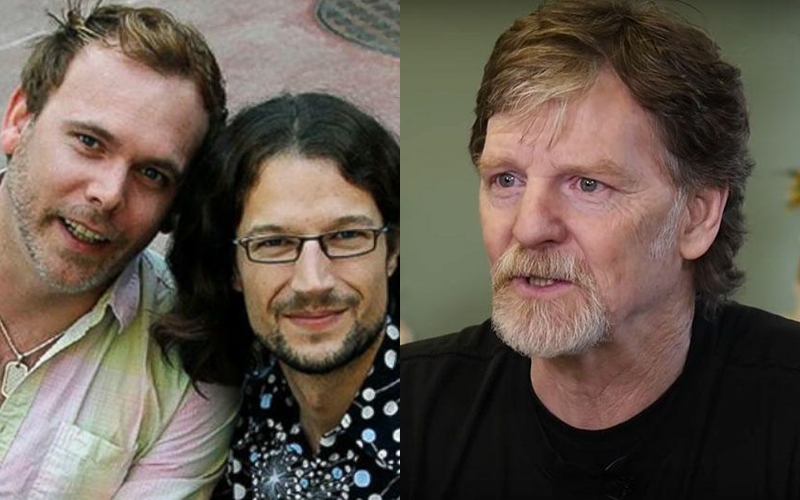Masterpiece Cakeshop ruling doesn’t crumple our opponents

A pall hung over me on June 4.
The Supreme Court ruled in “Masterpiece Cakeshop v. Colorado Civil Rights Commission” in favor of Jack Phillips, the baker who refused to make a wedding cake for a same-sex couple-Dave Mullins and Charlie Craig-on the grounds of religious freedom. In a 7-2 decision, the Justices argued that the commission had exhibited hostility toward religion in its treatment of Phillips’s case.
While the Justices did not grant a license to discriminate against LGBTQ Americans blatantly, I, like so many in our community, was hoping the case would render once and for all a cease-and-desist order; thus, resolving the God versus Gay rights dispute for those who want to codify discrimination against us under the guise of religious freedom.
And, while the Justices also did not say the decision will not influence opponents of same-sex marriages, like photographers, florists, wedding planners, wedding venues, honeymoon resorts, to name a few, Justice Kennedy’s narrow ruling, no doubt, will keep this debate going.
“It is very unfortunate that this ruling reinforces the ‘God vs. gay’ narrative that has pervaded our discourse and policy-making, “ Marianne Duddy-Burke, Executive Director of DignityUSA stated in a press release. “Many LGBTQI people and others who are working towards full equality in our country are people of deep faith and know that our identities are sacred gifts.”
Jack Phillips win, in my opinion, is a colossal blow to civil rights gains and state nondiscrimination laws; thus, giving room to legalizing denying services to LGBTQ Americans based on business owner’s religious belief. For example, in December 2017, Trump’s solicitor general, Noel Francisco, suggested these businesses should hang anti-LGBTQ placards like “No Gays Allowed” warning us to stay away. When Press Secretary Sarah Huckabee Sanders was asked to clarify the president’s position on the matter at a White House Press Conference, she responded: “The president certainly supports religious liberty…I believe that would include that.”
As a black lesbian in this Trump administration, I now feel like I am unquestionably moving into a new Jim Crow era reestablishing discriminatory laws targeting LGBTQ Americans. I grew up knowing about racist placards that read “Colored Water Fountain,” “Waiting Room For Colored Only,” ”We Serve Whites Only, and “No N-word Allowed, to name a few.
In Jim Crow, America restrooms were a hot-button issue, as today, and a battleground for equal treatment. The Civil Rights Act of 1964 outlawed discrimination based on national origin, race, hue, gender, and religion. The law mandated desegregation of all public accommodations, including bathrooms. The Obama administration expanded the Civil Rights Act of 1964 to protect LGBTQ Americans. However, Trump’s administration revoked federal guidelines permitting transgender students from using “gender-appropriate facilities ” which aligned with their gender identity.
Let’s face it, folks, since Trump has taken office there has been an erosion of LGBTQ civil rights under the guise of religious liberty. Transgender Americans being denied access to public lavatories is eerily reminiscent of the country’s last century Jim Crow era denying African Americans access to lunch counters, water fountains, libraries, gas stations, theaters, and restrooms, to name a few. Signs that read “whites only” prohibited entry.
Last June Trump paid tribute to the 49 LGBTQ victims of the Pulse Nightclub massacre, but failed to issue a proclamation for Pride Month. This year the Trump Administration has done the same.
In a Trumped-up Supreme Court there is talk among Christian evangelicals of walking back “Obergefell v. Hodges,” the historic U.S. Supreme Court ruling that legalized same-sex marriage in all 50 states. And, it can be done
without disrupting other precedents on marriage,” according to Rebecca Buckwaler-Poza”s article “The End of Gay Rights” in the June 2017 issue of Pacific Standard Magazine.
“The Supreme Court can significantly undermine LGBT rights even without reversing a single case,” Buckwaler-Poza wrote. “Right now, the federal prohibition against sex discrimination doesn’t bar discrimination on the basis of sexual orientation or gender identity; the Equal Protection Clause affords no specific protections for LGBT people, as it does for members of groups defined by race or nationality. The Court can strip the rights to intimacy and marriage of their meaning, carving away gradually and masking the magnitude of changes by phrasing them in arcane legal terms.”
Many conservatives in Phillips’s camp argue that his position is not a repudiation on same-sex marriage, but rather it’s a principled stance to fight for free expression unfettered by the tyranny of political correctness.
“We at Cato have long supported both religious liberty and gay rights, insofar as the agenda of each is consistent with the liberty of unlimited constitutional government,” Roger Pilon, founding director of the Cato Center for Constitutional Studies, said. “But we draw the line when same-sex couples turn around and use government to force venues against their religious beliefs to participate in same-sex ceremonies, as happens too often today.”
Oddly, however, when the argument is framed as Pilon states there’s no room to ensure that LGBTQs will not be discriminated against because of who we are and who we love.
Democracy can only begin when those at the margin can experience what others take for granted. I’m not confident that this government has our backs.
